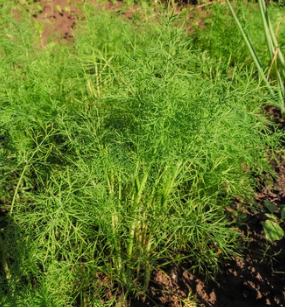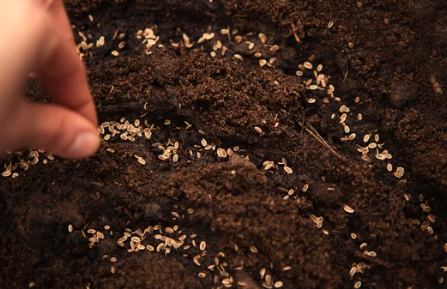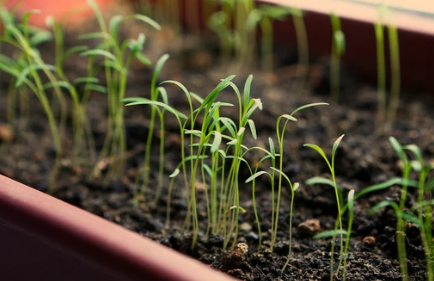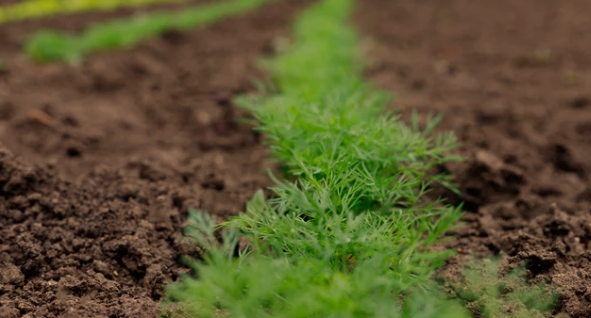Dill, a delicate and aromatic herb, has long been cherished for its culinary uses and medicinal benefits.
Aspiring gardeners and herb enthusiasts often find themselves pondering over the conditions required for dill seeds to germinate successfully.
In this comprehensive blog post, we will delve into the age-old question:
Does dill need light to germinate?
Join us on a journey of discovery as we unveil the secrets of dill germination and shed light on the factors that contribute to its successful growth.
The Science Behind Dill Germination

Before we explore the light requirements for dill germination, it’s crucial to understand the science behind the germination process itself.
Germination is a complex series of events triggered by environmental conditions that prompt a dormant seed to sprout and develop into a seedling.
Several factors play a role in this process, including temperature, moisture, and, indeed, light.
Does Dill Need Light to Germinate?
While dill seeds do not necessarily need light exposure to germinate, light plays a significant role in the overall growth and development of the plant.
However, with various factors that influence germination and provide optimal conditions, you can cultivate healthy dill plants and enjoy fresh, aromatic leaves in your culinary endeavors.
you can increase the chances of successful dill germination, whether in light or darkness. Remember to provide adequate light to the seedlings after they emerge to support their growth and overall health.
Factors Influencing Dill Germination

To set the stage for successful dill germination, let’s examine the various factors that influence this crucial stage of the herb’s life cycle.
Optimal Temperature for Dill Germination
Temperature plays a pivotal role in dill seed germination. For most varieties of dill, the preferred temperature range for successful germination is between 60°F (15°C) and 70°F (21°C).
Seeds germinate more slowly at lower temperatures, while higher temperatures can hinder germination altogether. Maintaining a consistent temperature within this range can significantly enhance germination rates.
Moisture Requirements
Moisture is another critical factor that affects dill seed germination.
Adequate moisture levels are essential to soften the seed coat and activate enzymes responsible for breaking down stored nutrients, which fuels the seedling’s initial growth.
While dill seeds require moisture, excessive watering can lead to rot or fungal diseases. Striking the right balance is crucial.
Light Requirements for Dill Germination
Now, let’s address the central question: Does dill need light to germinate?
Unlike some seeds that require light exposure to trigger germination, dill seeds fall into the category of seeds that do not have a strict light requirement.
Dill seeds can germinate in both darkness and light. In fact, dill seeds are known to exhibit what is called “indifferent photoblastic” behavior, meaning they are not significantly influenced by light exposure during germination.
However, while dill seeds don’t necessarily need light to germinate, it’s important to note that light plays a vital role in the process of photomorphogenesis—the regulation of growth and development in response to light.
Light affects various aspects of plant growth, including stem elongation, leaf expansion, and chlorophyll production.
Therefore, providing ample light to dill seedlings after germination is crucial for their overall health and vigor.
Dill Seed Germination Techniques

Does Dill Need Light to Germinate
While light exposure during germination isn’t a strict requirement for dill, some gardeners choose to expose their dill seeds to light to stimulate better growth.
Here, we explore different techniques for dill seed germination:
Light Exposure Methods
If you decide to expose your dill seeds to light during germination, several techniques can help you achieve this goal.
One approach is to simply sprinkle the seeds on the soil surface and gently press them in, ensuring they have good soil contact. This method allows the seeds to be exposed to light as they germinate.
Another option is to cover the seeds lightly with a thin layer of vermiculite, which allows light to penetrate while providing a suitable environment for germination.
Alternatives to Light Exposure
If light exposure isn’t feasible or convenient for you, rest assured that dill seeds will germinate successfully in darkness as well.
In the absence of light, dill seeds rely on other environmental cues, such as temperature and moisture, to trigger germination.
However, it’s important to provide sufficient light to the seedlings after they emerge to ensure healthy growth.
Practical Tips for Germinating Dill Seeds

Now that we’ve covered the factors influencing dill germination, let’s delve into some practical tips to help you successfully germinate dill seeds:
-
Preparing the Soil and Sowing the Seeds:
- Choose a well-draining soil mix with a neutral pH level for optimal dill seed germination.
- Clear the planting area of weeds and debris that may hinder seedling growth.
- Sow the dill seeds at the appropriate depth, typically around ¼ inch deep, and space them about 12 inches apart to allow for healthy root development.
-
Watering and Maintaining Moisture Levels:
- Water the soil thoroughly before sowing the seeds to ensure uniform moisture distribution.
- Keep the soil consistently moist during the germination period but avoid overwatering, which can lead to fungal diseases.
- Use a gentle misting technique or a watering can with a fine nozzle to prevent dislodging or damaging delicate seeds.
-
Post-Germination Care:
- Thin the dill seedlings once they have reached a height of a few inches, leaving the strongest ones spaced about 12 to 18 inches apart.
- Transplant any excess seedlings to other areas of your garden or share them with fellow gardeners.
- Ensure the seedlings receive adequate light, either by placing them in a sunny location or using supplemental grow lights if growing indoors.
Dill Troubleshooting Common Germination Issues
While dill is generally a resilient herb, a few common germination issues may arise. Here are some troubleshooting tips:
-
Slow Germination or Seed Dormancy:
- If dill seeds exhibit slow germination, ensure they are receiving consistent warmth within the optimal temperature range.
- Some dill seed varieties may require pre-treatment techniques like stratification (exposing seeds to cold temperatures) or scarification (scratching or nicking the seed coat) to break dormancy.
-
Seedling Diseases and Pests:
- Keep an eye out for damping-off, a fungal disease that can affect young dill seedlings. Avoid overwatering and ensure good air circulation to prevent this issue.
- Protect seedlings from common pests like aphids, caterpillars, or snails by using organic pest control methods such as neem oil or physical barriers.
Conclusion
In conclusion, while dill seeds do not necessarily require light exposure to germinate, understanding the factors that influence germination and providing optimal conditions can significantly increase the success rate.
When you implement these tips and techniques discussed in this blog post, you can embark on a rewarding journey of growing healthy dill plants right in your garden or indoor space.
Remember, whether you choose to expose dill seeds to light or germinate them in darkness, providing adequate light to the seedlings after they emerge is crucial for their overall growth and development. Happy gardening!




